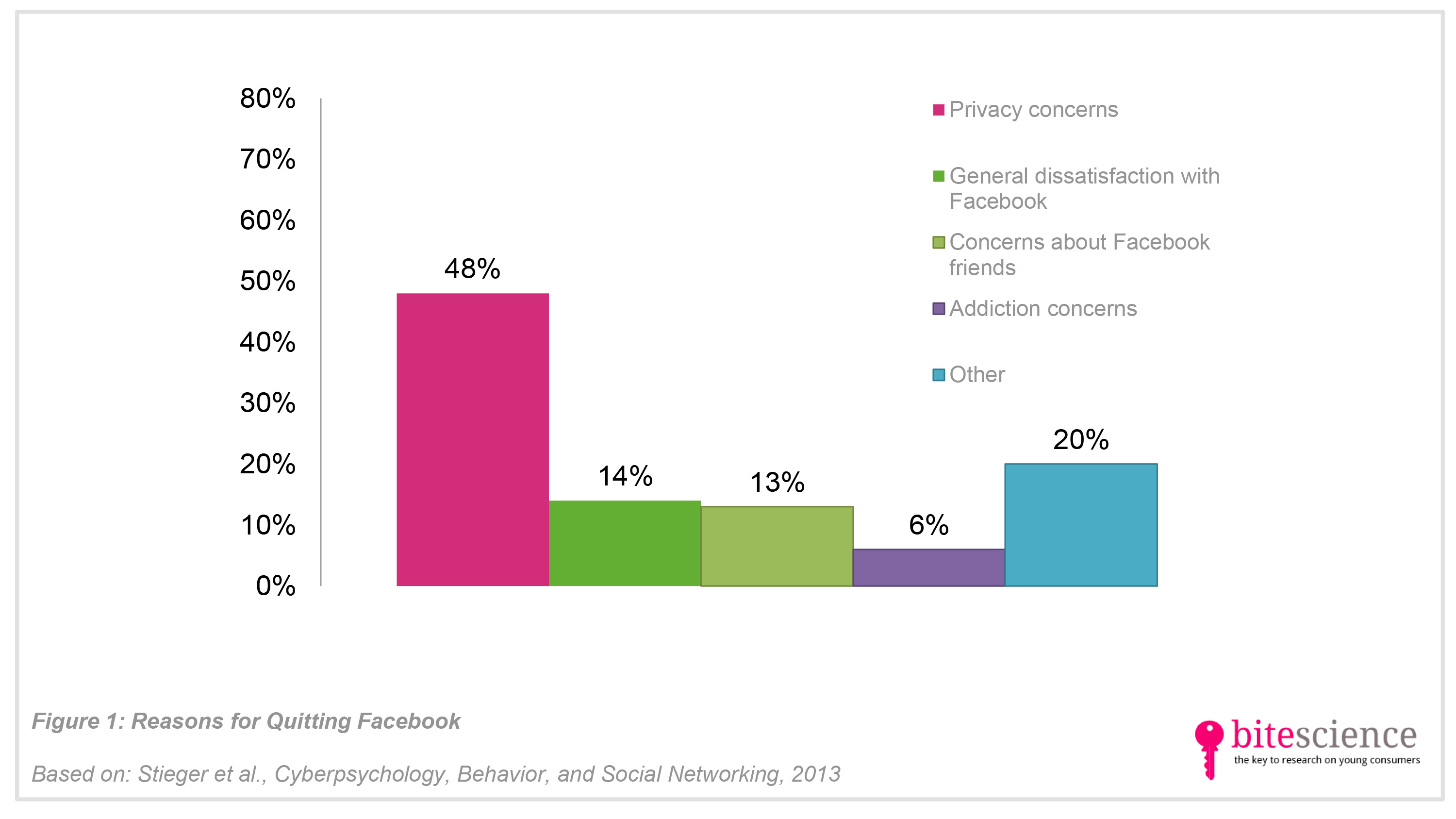
To Quit or Not to Quit? Young Adults’ Reasons for Leaving Facebook
Facebook is still the most popular social network site. However, despite its success a growing number of people feel the urge to leave Facebook, and quit their entire online social media life. What do we know about these so-called virtual identity suiciders? And what are their reasons to leave the social media arena?
Take aways
- Reasons for leaving Facebook were mainly privacy concerns (e.g., a fear of data selling and data protection).
- Facebook quitters tend to be more conscientious (e.g., precise, organized), and more concerned about their privacy in daily life as well, as compared to Facebook users.
- Quitters also tend to have higher internet addiction scores than users of Facebook.
- In order to keep users or attract new users, developers of social media must be aware of the importance of privacy for their users.
Study information
The question?
Why do (young) adults quit using Facebook? And are there any differences in the personality characteristics and internet addictions scores between Facebook quitters and users?
Who?
310 Facebook quitters, between the ages of 11 and 75 (mean age: 31 years old); 72% men; 64% lives in North-America, 36% in Europe, 8% in Asia, 5% in South-America, 4% in Australia, and 2% in Africa
321 Facebook users, between the ages of 15 and 63 (mean age: 24 years old); 71% women; 74% lives in North-America, 16% in Europe, 6% in Asia, 2% in South-America, 2% in Australia, and 1% in AfricaWhere?
All over the world
How?
The respondents filled out an online survey that revealed their privacy concerns regarding Facebook, their internet addiction scores, and their personality characteristics (i.e., retrieved via a mini version of the ‘Big Five Inventory’ test to measure their level of five important personality characteristics: extraversion, conscientiousness, agreeableness, neuroticism, and openness to experience). The Facebook quitters were additionally asked for the reason they left Facebook.
Facts and findings
- The most mentioned reason for leaving Facebook was related to privacy concerns (e.g., the selling of data, ethics, data protection), followed by a general dissatisfaction with Facebook (e.g., design changes, waste of time), concerns about Facebook friends (e.g., shallow conversations, not real friends), and a fear of getting addicted to Facebook (e.g., spending too much time on Facebook). About 20% indicated other unspecific reasons for quitting, such as a lost interest, or harassment. (See figure 1)
- Differences between Facebook quitters and users:
- Facebook quitters were older (mean age: 31 years old) than Facebook users (mean age: 24 years old) and more often male (72% compared to 29% women).
- Facebook quitters were more concerned about their privacy in everyday situations, and were also more conscientious (e.g., precise, organized) than users of Facebook.
- Facebook quitters had higher internet addiction scores as well (i.e., they indicated greater problems caused by internet use, such as sleeping, productivity, or social problems).
- Critical note: This study does not allow for any conclusions about cause (being more privacy aware, more conscientious, and more suffering from internet use) and effect (quitting with Facebook). The results only show that Facebook quitters are associated with having more privacy concerns, being more conscientious, and with having higher addiction scores.
